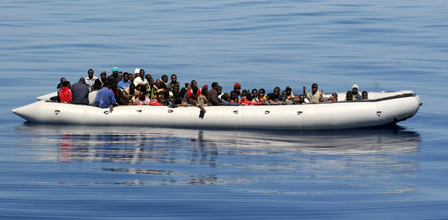Human dignity and biophysical violence: Migrant deaths across the Mediterranean Sea

This research was funded by Professor Vicki Squire's Leverhulme Research Fellowship, which ran from September 2015 to August 2018. It culminated in a book publication with Cambridge University Press, Europe's Migration Crisis: Border Deaths and Human Dignity.
The death of people on the move across the Mediterranean Sea raises questions about the limitations of the EU’s definition of human dignity. Rather than representing an inviolable ground on which fundamental rights rest, such deaths suggest that the EU neglects the value of migrant lives by failing to account for a form of violence whereby physical forces act directly on migrating bodies. This project examines different interventions in the central Mediterranean whereby migrant deaths at sea are tolerated and/or contested. It provides renewed appreciation of the potential and limitations of human dignity, by addressing the violence involved in neglecting the value of migrant lives. In so doing, the project advances a novel conception of biophysical violence, understood as a form of violence that engages environmental forces in terms that operates directly on the biological functions of migrating bodies.


